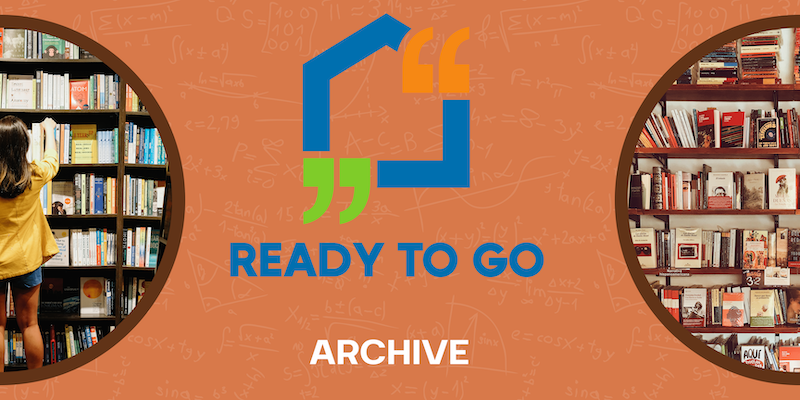
Every day, there are thousands of new home buyers that are entering the market looking for a home to buy. But if you’re not actively engaged in reaching these home buyers, you could be missing out, and you can bet that your competitors won’t waste time sliding in to take those valuable relationships. It’s because first-time home buyers are starting from scratch and they might not know how to go about purchasing a home and how to find someone they can trust.
In fact, new home buyers are inundated with information at every step of the process, and it’s hard for them to make sense of it all without a trusted advisor to walk them through each step. That could be you, but you’ve still got to reach them in the first place. The secret is that more and more new home buyers are turning to homebuyer education courses or classes that can get them up to speed in as little time as possible, which illustrates this lack of information in the marketplace.
What is a new home buyer class?
A new home buyer class is a course put together by a third party and sponsored by the U.S. Department of Housing and Urban Development (HUD). They’re intended to teach new home buyers everything they need to successfully purchase a new home, and they commonly allow home buyers to qualify for grants or down payment assistance that are offered by many states, local municipalities and nonprofits that require the completion of a homebuyer education class before doling out the awards.
While they’re primarily intended to get new home buyers up to speed, savvy, first-time home buyers are increasingly seeking these classes out for the perks that are granted only to people that have completed such a class.
There are also non-HUD classes available for those who want either different or additional education. Several states including Connecticut, Maryland and Virginia offer free first-time homebuyer classes, and there are other entities that exist that offer either in-person or online classes that provide insight into the entire home purchasing process. While these are not necessarily government-sponsored classes and there aren’t always set-out benefits for completing them as there are with HUD-organized events, they are still worth many buyers’ time and effort because of the perspective they instill in those who attend.
Non-HUD events include information on qualifying for a mortgage, down payments, how to search for homes and several other important steps in the purchasing process. The bottom line is that the more people understand about this complicated situation, especially if it’s their first time going through it, the better off everyone will be as they find the home they want and begin the offer process.
What are home buyers looking to learn?
In any one of the approved homebuyer courses, home buyers are looking for information that will make the dream of owning their own home a reality. It can include a review of financials, which may dictate the home they are actually able to afford, as well as the type of home that may be best for them, such as considering things like a yard or attached garage for those that have grown accustomed to apartment living.
The classes also commonly cover mortgage loan products, lenders and the importance of a good credit score, but the most important piece for real estate agents is that they’re given information on how to comparison shop for a real estate agent to help them navigate this unknown world of buying a home.
Who takes a homebuyer education class?
Anyone that’s looking to buy a home for the first time is a great candidate for a home buyer education class. Some are required to do so to qualify for a loan or other assistance, but the information learned from the class can be useful, such as how to vet lenders and real estate agents, including how to interview and select the real estate agent that will be their partner throughout the process.
Primarily, however, the classes are intended to arm new home buyers with the information they need to make the right decisions, such as buying a home they can actually afford rather than splurging on something that may turn into a challenge financially down the line. The certificate they receive upon completion of the course can also help them qualify for a loan, grant or payment assistance program, which can help make the intricate process of buying and owning a home easier.
What are the costs associated with a home buyer course?
Some home buyer education courses are free, but the ones that do charge are relatively low-cost and shouldn’t exceed about $100. In-person classes tend to be cheaper, though online courses are much more convenient as they can be completed from the comfort of home as time permits.
Is a homebuyer education class required?
If a lender requires the completion of a home buyer course to qualify for a loan or another type of assistance, a homebuyer education class is required. But not all first-time home buyer classes are equal, and only those that are approved by HUD and their state will help when it comes to assistance programs.
Who can offer home buyer education classes?
Many organizations and companies offer homeownership counseling in various cities and states across the U.S. However, each home buyer course must be approved and unaffiliated with any lender, which could create a conflict of interest.
Benefits of a first-time home buyer course?
From the aforementioned loan requirements, down-payment assistance programs and grants worth up to $25,000, there are a lot of benefits to completing a home buyer course. Additional perks may also include closing-cost assistance, mortgage rates that are below market rate, and mortgage loan forgiveness.
For example, Fannie Mae guidelines stipulate that all first-time home buyers must complete a homebuyer education course to qualify for a three-percent-down loan, which is a super-low interest rate. Other buyers that are utilizing nontraditional credit to qualify may also be required to complete a course. It’s all dictated by federal and state law, and anyone that’s receiving government aid must complete a homebuyer course before they’ll be allowed to purchase a home.
How long does a home buyer course take?
For most people, the average home buyer course takes just one day, and can be completed in as little as four hours. Some may take six to eight hours, which is typically split into a morning and afternoon session, but some home buyers need extra attention, and it’s not unheard of for some people to spend dozens of hours fine tuning their budget and optimizing their search for the perfect home under the guidance of professionals.
What does this mean for real estate agents?
If you’re looking to capture a slice of the new home buyers’ market, it’s important that you check all the boxes. There’s a lot of information out there — some good and some bad — and if you can cut through all the noise you may be able to build a customer for life. Encouraging a home buyer course is a great way to build trust between you and your clients, and the information they learn will only make them a better partner throughout the home buying process.
You could also look to strike up a relationship with local home buyer courses, or start one of your own, where you can come in and share some of your expertise for a chance at building some lasting relationships. Your time with potential prospects in the course may also call your attention to important issues that you may have overlooked, helping make you a more effective real estate agent to overwhelmed first-time buyers.
—
For more on how to reach more home buyers in your local area, please contact the experts at ReadyToGoNewsletters.com. We create professional real estate newsletter subscription services with interesting and engaging, ready-made newsletters that you can edit as much or as little as you want before you send it out. Win more listings and boost your real estate business with proven newsletters that work. Contact us to learn more.




